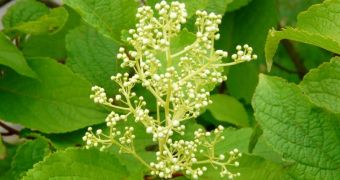Researchers with the University of Minnesota in the United States claim that, according to their investigations, a simple Chinese herbal extract could help treat pancreatic cancer.
In a press release on the matter at hand, the scientists explain that the concoction in question, dubbed triptolide, is made from a Chinese herb known as the thunder god vine, or Tripterygium wilforii.
This herb, a photo of which is available above, has long been used in traditional Chinese medicine to treat health issues like fever, chills or edema. Scientists think that it could also be used to treat several other conditions, including cancer.
Experiments have shown that this herbal extract contains compounds that can act on a protein believed to help pancreatic cancer cells survive and thrive. Specifically, evidence indicates that triptolide can suppress this protein, identified as GRP78.
As explained by EurekAlert, pancreatic cancer is a fairly aggressive medical condition and progresses surprisingly quickly. This is because pancreatic cancer cells have off the charts replication rates, which translates into rapid tumor growth.
Previous studies have shown that survival rates among people diagnosed with pancreatic cancer cells are less than 5%. What's more, this condition is argued to be the fourth most common cause of cancer death in the United States.
If the University of Minnesota researchers are right and triptolide can in fact be used to suppress the GRP78 protein, this might help slow down the progression of pancreatic cancer. In time, this would translate into increased survival chances.
Experiments carried out in laboratory conditions have shown that, although pancreatic cancer cells contain significant amounts of the GRP78 protein, the Chinese herbal extract has the ability to toy with their behavior, and even trigger cell death.
“Our study shows that although increased expression of GRP78 confers a survival advantage to the tumor cells, prolonged exposure to triptolide induces chronic ER [endoplasmic reticulum] stress, which eventually leads to cell death,” the researchers say.
“In this context, inhibition of GRP78 by activation of the ER stress pathway by triptolide offers a novel mechanism for inhibiting the growth and survival of pancreatic cancer cells,” the University of Minnesota team goes on to explain.
The specialists behind this research project say that they wish to carry on with their work and hope they will soon gain a better understanding of how triptolide works and of its impact on pancreatic cancer cells. It is to be expected that, at some point, the scientists will even debut clinical trials.

 14 DAY TRIAL //
14 DAY TRIAL //